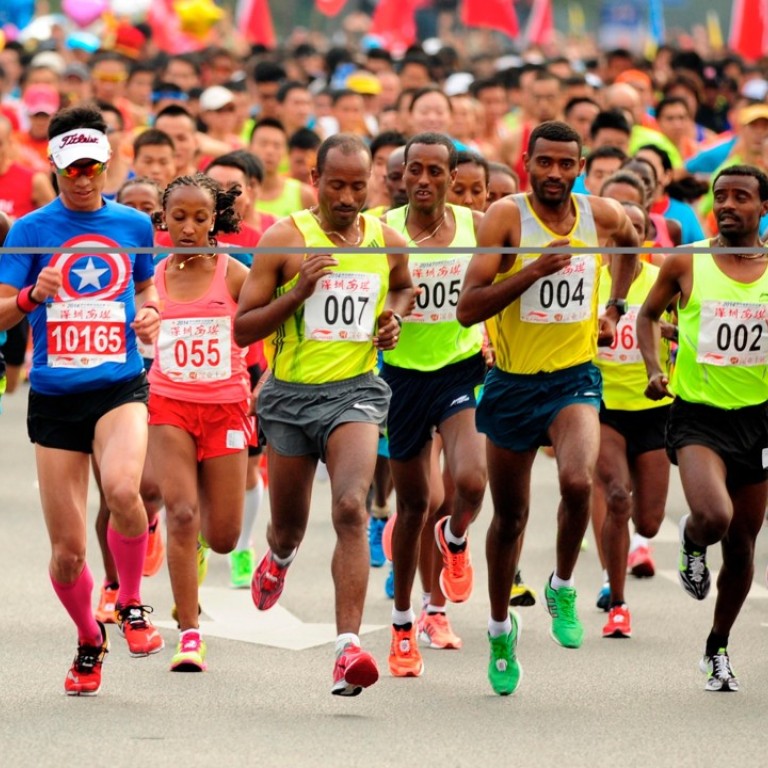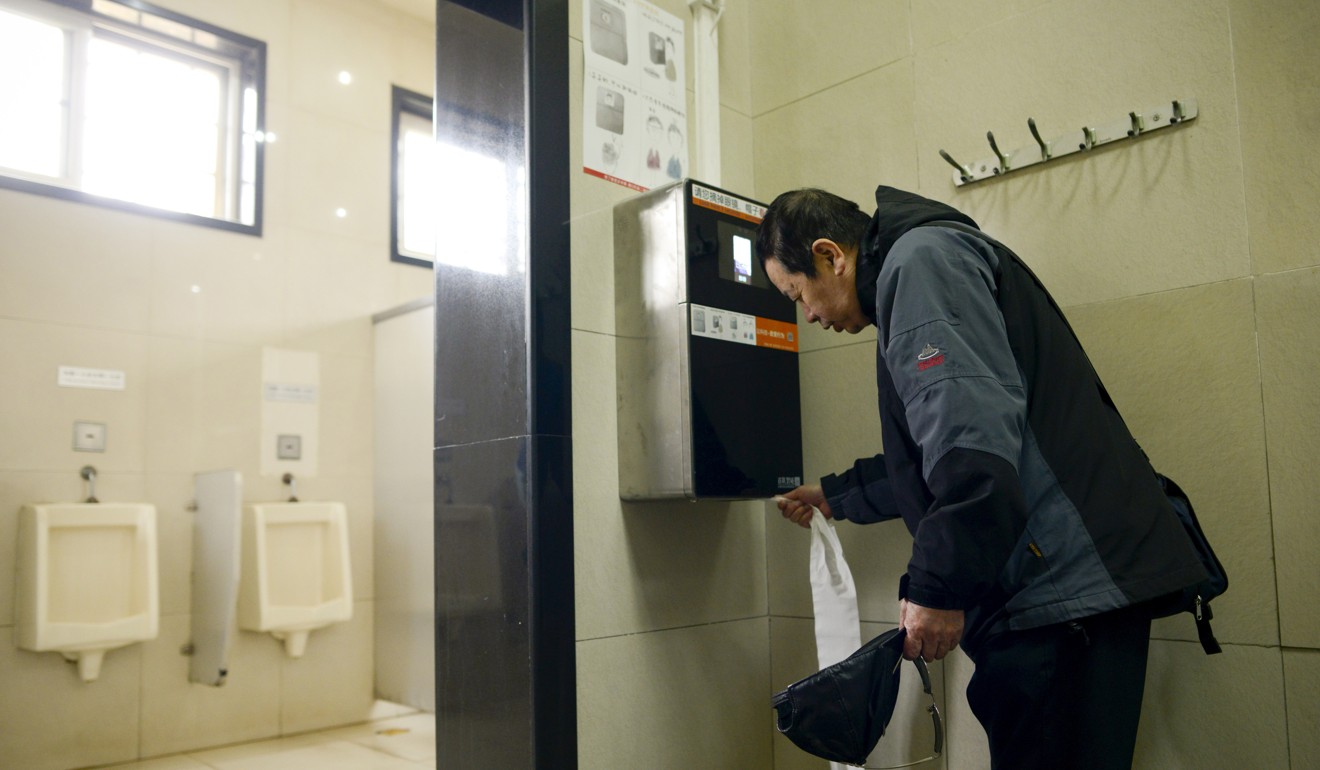
Shenzhen Marathon shows desire to cheat so why not listen to Tyson Fury and accept it instead of getting upset?
- British boxer has suggested sport opens doors to doping because of ‘Greek gods’ already doing it
- China catching up fast when it comes to hosting and cheating at distance running events
Marathons in China may be new but Chinese runners have caught up when it comes to cheating as proved by the couple of hundred competitors at the Shenzhen half-marathon who ran straight out of the Dick Dastardly school of racing. Some cut the course, others hired people to run for them.
“Deeply shameful” was the verdict of state news agency Xinhua but it’s become standard for marathons the world over. If people can cheat then they will. They always have.
In the 1904 Olympics Frederick Lorz used a car. In 1980 Rosie Ruiz used a subway to cut some of the Boston Marathon. In 1999 a set of twins shared a marathon in South Africa, swapping over in the toilets. These stand out. Cheating is usually more mundane.

It happens so often that there is a website to expose marathon cheats and founder Derek Murphy was not amused by the Shenzhen cheats. He certainly did not agree with the view that they are only cheating themselves.
“Even those that aren’t qualifying for Boston or claiming fake age group awards are still cheating,” he wrote on his website.
Murphy makes the point that until the punishment fits the crime then cheating is inevitable. It already keeps him busy full-time. Of the 258 Shenzhen cheats, 21 have been banned from the event for life with the others banned for two years.
However, there are more than 1,000 marathons in China this year so it’s not actually much of a punishment. They are inconvenienced, nothing more.
“Everyone that cuts a course and crosses the finish line to claim a finisher’s medal is cheating every honest participant,” Murphy writes. “They are cheating everyone that put in the time to prepare and that honestly ran, or walked every inch of the course.”

He’s right, of course, but should we let it bother us?
Sport has long been the preserve of cheats. The whole thing is rigged for those who are willing to game the system and push the rules. Whether that is Neymar diving at every opportunity to the chagrin of Jurgen Klopp or marathon course cutters, until there is a meaningful punishment there is no incentive not to cheat.
Cheating is acceptable in some places, as a look at the neighbours of Neymar’s Brazil shows. Uruguay’s best football moment this millennium was down to Luis Suarez making a last ditch save against Ghana. No matter that the striker got sent off for his deliberate handball, his side went through. Diego Maradona’s own digital intervention was at the other end, his “Hand of God” goal helping Argentina see off England in the 1986 World Cup.
Canniness to those in Argentina, something very different to Terry Butcher – a man who is still enraged at Maradona telling him that he headed the ball in. The Argentina forward’s handball remains one of football’s iconic moments and the game would be much poorer without it.

Another iconic moment was the men’s 100-metre final at the 1988 Olympics. Everyone remembers Ben Johnson’s veins popping as he beat the rest of the field to the title of world’s fastest man before losing out after testing positive, to the surprise of no one, for steroids. Every one of the runners that day went on to test positive at some point during their careers.
As for the Tour de France, the systemic doping of some teams has forever tarnished the race while Therapeutic Use Exemptions have become the latest reason to be cynical of riders. Tyson Fury, of all people, has an answer for this: let everyone dope. They are going to anyway so why don’t we all admit it?
Three years ago, in the lead up to what then was his only world title fight before Saturday’s throwdown with Deontay Wilder, Fury suggested just that to the BBC. “Why don’t they just make drugs totally legal in sports, then everybody would be taking drugs then it would be fully fair then wouldn’t it?” Fury asked.

“If everyone was taking drugs then it would be fairer I think because you can’t tell me that 99 per cent of these sports people ain’t taking drugs when they’ve got bodies like Greek gods.”
Why not go further? Allow cheating too. Winning at all costs is spoken of so why not actually embrace it. At least these people are trying to win.
Match-fixing is another thing entirely and we would all be better off reserving our outrage for the likes of China’s Yu Delu and Cao Yupeng, who have become the first Chinese snooker players to be banned for match-fixing this week, with Yu having to sit out the next decade.
As for the cheats, technology is the answer, if we want one. It could easily be harder to cheat – or at least harder to cheat and get away with it.
Sunday’s Kunming marathon deployed facial recognition technology, something that is being used more often in China from marathon cheats to cutting out toilet paper theft in Beijing’s public toilets.
Seeing as people are going to cheat anyway, that seems like pouring money, effort and our sanity down the drain.

